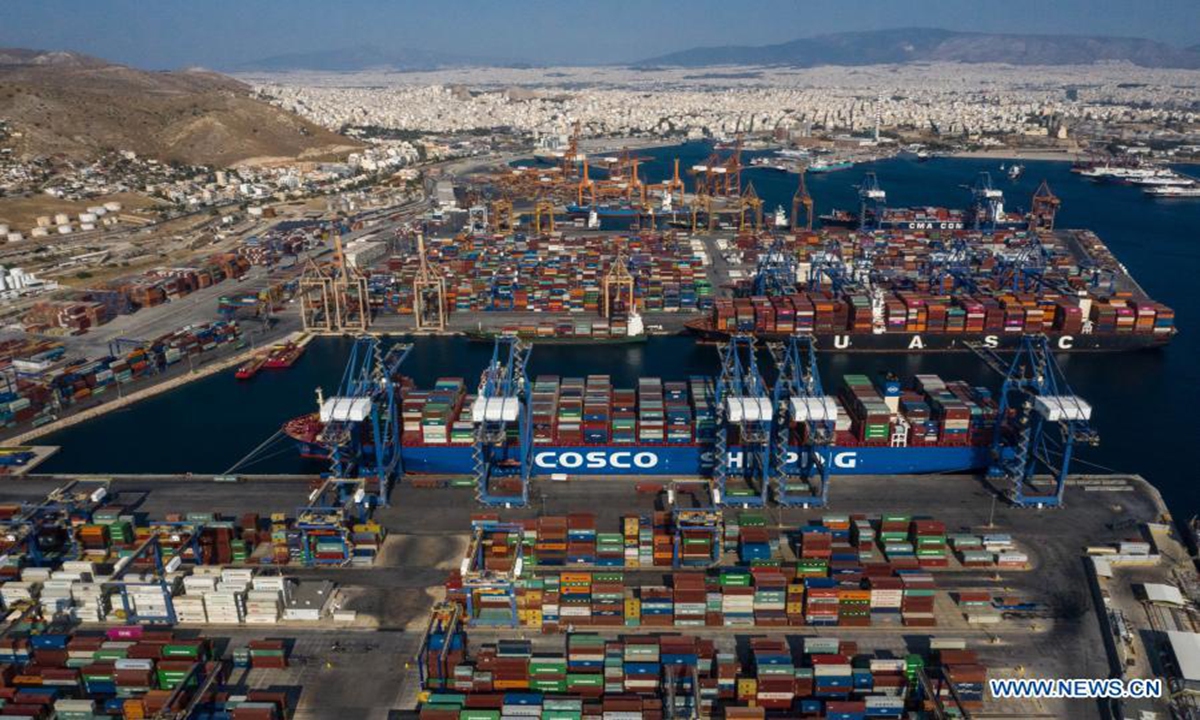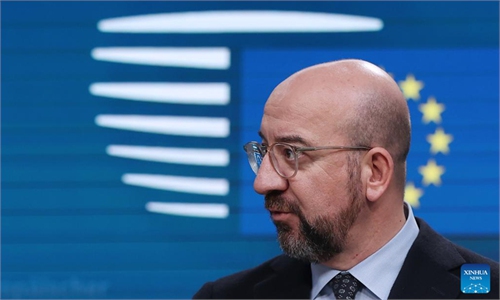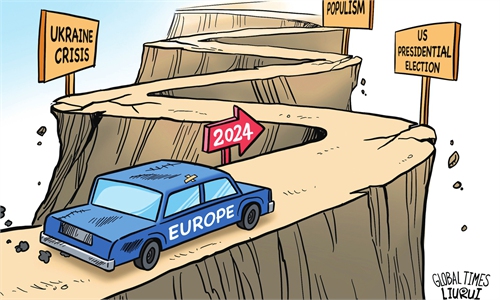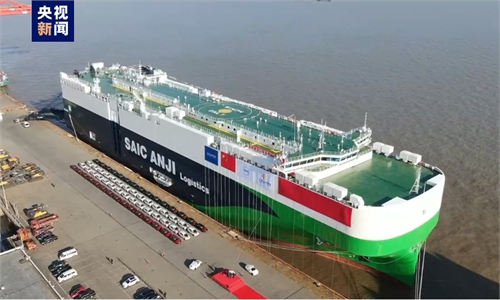
An aerial photo of the Port of Piraeus in Greece Photo: Xinhua
It is hardly surprising that European politicians have again resorted to employing the "China threat" narrative to pressure Chinese infrastructure investments in Europe. Their motives appear to be purely political, disregarding the substantial economic benefits that stem from China-EU infrastructure collaboration.Members of the European Parliament (MEPs) on Wednesday passed a proposal warning of the risks of growing Chinese influence over European critical infrastructure, media reported. Specifically, concerns were raised regarding the risks of economic dependence, espionage or sabotage that EU ports could face.
MEPs suggested that foreign influence in EU ports should be limited and called for action to reduce vulnerabilities, according to European media reports.
This is not the first time European politicians have played up the so-called risks of Chinese investment in European ports and other types of infrastructure. The essence of the rhetoric sounds familiar, as it is nothing but another version of the "China threat" theory.
It highlights the stubborn bias toward China within Western public opinion: Regardless of what China does, it is consistently portrayed as posing all kinds of dangers and threats.
For instance, in 2013, a cover of The Economist magazine depicted China's carbon emissions as a threat facing the Earth, while in 2024, another cover of the same magazine likened Chinese electric vehicles to meteorites crashing onto the Earth, indicating that the new threat is China's lead in green technologies. These contradictory reports exemplify the unchanging narrative that China will always be the "bad guy."
Unfortunately, today's European politics is heavily influenced by this kind of paranoid thinking about the "China threat." Whether or not infrastructure cooperation between China and the EU is beneficial to Europe, they don't care and are obsessed with hindering Chinese investment. They cannot give any substantive reasons to justify the so-called risks, nor can they answer the question of how to find new investments to save companies on the verge of bankruptcy if Chinese investment is excluded.
The inability to offer solutions is precisely why attempts to smear Chinese investment will not impede port cooperation between China and Europe. When you can't solve a problem and instead try to obstruct those who can, you are destined to fail.
For instance, despite Western political hype about security concerns related to Chinese investment, after a thorough evaluation and assessment, the German government still made the rational decision to proceed with the plan to allow COSCO Shipping Ports Limited to acquire stakes in a Hamburg port terminal, a recognition that its significance in the country's economic development and port operations should prevail over a groundless geopolitical mindset.
COSCO Shipping's investment in Greece's largest port, the Port of Piraeus, is another example. When Western media outlets sensationalized the deal as a "threat to European economic security," they turned a blind eye to the fact that Greece was forced by an EU bailout to sell its infrastructure to private investors, and they can hardly find a European investor for the Port of Piraeus, which was experiencing a drastic decline in the throughput performance at that time.
No one can deny that the cooperation between COSCO and the Port of Piraeus has greatly enhanced the container throughput of the port and brought significant benefits to the Greek economy in terms of port competitiveness. The port has even played a huge role in promoting economic and trade cooperation between China and Europe.
If anything, COSCO's investment in the Port of Piraeus has become an exemplary case of common development and mutual benefits of China-Greece cooperation. As the world's largest trading country in goods and a significant trading partner for over 140 countries and regions in the world, China has the objective need to invest in overseas ports, considering trade and shipping facilitation and cost saving. Any geopolitical interpretation is a distortion of reasonable, mutually beneficial collaboration.
It is regrettable that some European politicians are fixated on the "China threat" narrative surrounding China's infrastructure cooperation, disregarding the interests of the European economy. Their bias reflects the negligence about Europe's future infrastructure development and their selfishness in prioritizing their own political interests.



